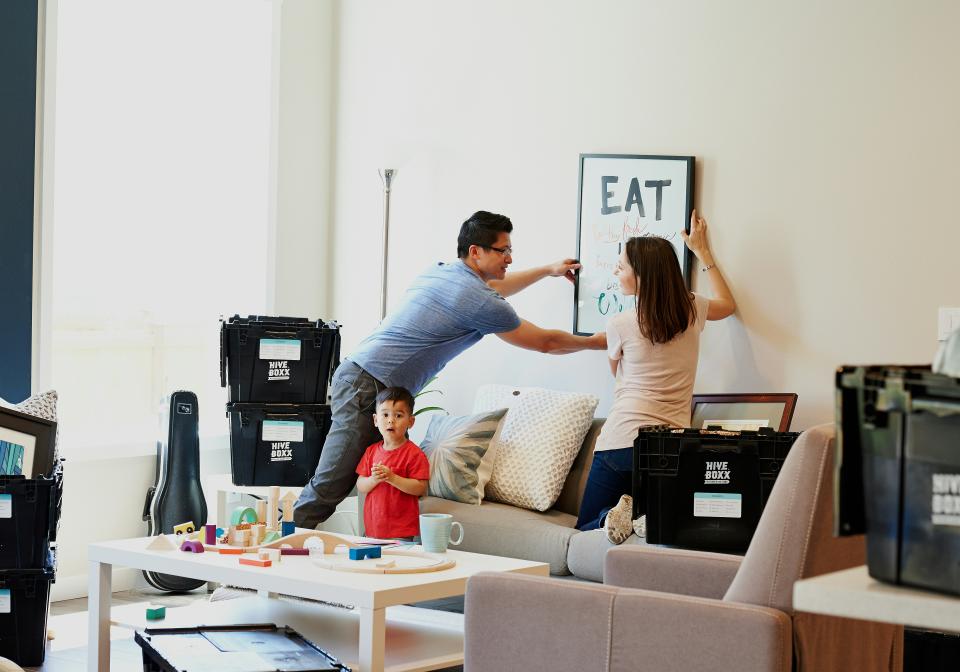Checklists
Below you find practical checklists with everything you need to know:
- Before you move
- When you arrive
- Once you have settled
Before you move
10 key Steps to take before moving to Belgium
Moving to Belgium can be an exciting yet complex process, requiring careful planning and attention to various legal, logistical, and personal details. Whether you're relocating for work, family, or other reasons, there are several steps to complete before your move to ensure a smooth transition. Below you can find the most crucial steps.
1. Secure your dream job
Before relocating, securing employment is a vital step. Not only does it provide financial stability, but it also plays a key role in obtaining the necessary permits for living and working in Belgium, unless you are moving to Belgium becquse of family related matters. Be sure to research job opportunities and apply well in advance to ensure your employment status is sorted before your move.
2. Arrange visa that is right for you (For Non-EU/EEA Citizens)
If you are not a citizen of the European Union (EU) or European Economic Area (EEA), you'll need to apply for a visa to enter Belgium. Make sure to gather the necessary documents and follow the application process through the Belgian embassy or consulate in your home country. Processing times may vary, so start this process early to avoid delays.
3. Obtain a work permit and residence permission
Along with your visa, non-EU/EEA nationals will need a work permit or a professional card to work legally in Belgium. In addition to your work permit, you will also need to secure residence permission to legally live in the country. These permits may require your employment contract and other supporting documents, so be sure to prepare everything well ahead of time.
4. Begin your civic integration process
The Belgian government requires many newcomers to undergo a civic integration process, especially if you're planning to live in the country long-term. This process may involve language courses, understanding local customs, and gaining insight into Belgian laws and regulations. Start this early to ensure you meet all the requirements for integration into Belgian society.
5. Arrange temporary accommodation (if necessary)
Upon your arrival, it's important to have a place to stay, even if only temporarily. Whether you opt for short-term rentals or find accommodation through friends or colleagues, ensure your living situation is sorted before you leave. This will give you peace of mind and help you adjust to your new surroundings.
6. Find a school or childcare provider for your children
If you're moving with children, securing educational or childcare arrangements should be a priority. Belgium offers a variety of schools and childcare providers, but availability and waiting lists can vary. Research options in advance to find a suitable place for your child, and be prepared to complete any required documentation, including in Dutch or French, depending on the region.
7. Prepare all necessary documents
When moving internationally, it’s essential to gather and prepare your documents. These may include passports, employment contracts, marriage certificates, and birth certificates. Additionally, certain documents may need to be translated into Dutch, French, or English and legalized for use in Belgium. Begin this process early to avoid delays.
8. Book your flight or transport
Once all the paperwork is in order, you can finalize your travel plans. Book your flight or transport to Belgium, keeping in mind any restrictions or travel advisories that may apply. It's recommended to secure your travel arrangements well ahead of your move date.
9. Understand pet importation regulations
If you're bringing a pet with you, make sure to familiarize yourself with Belgium's pet importation rules. These rules can include vaccinations, microchipping, and quarantine requirements. Research these regulations thoroughly to ensure your pet can join you in Belgium without any complications.
10. Prepare for car importation
If you plan to bring your car, there are specific procedures for importing vehicles into Belgium. These regulations include registering your car with local authorities and ensuring you have the mandatory third-party liability insurance. Be sure to check the requirements well in advance to avoid any issues upon arrival.
By following these steps, you'll be well on your way to a successful move to West Flanders. Careful preparation will help you navigate the complexities of relocating and allow you to settle into your new home with confidence.
When you arrive
Top 8 Key Things to Keep in Mind When You Move to Belgium
Once you’ve arrived in Belgium, there are several important steps things to keep in mind to ensure your transition goes as smooth as possible.
1. Register at the Municipality.
Within three working days of your arrival in Belgium, you must register with the local municipality where you’re staying. This step is mandatory for all new arrivals, third-country family members of Union citizens have a separate arrangements and must report within 10 working days. The process for registration differs slightly depending on your nationality and status, so be sure you can make an appointment at City Hall to find out the specific requirements for you.
2. Obtain your national registration number.
Once registered at your municipality, you will be assigned a national registration number, which is crucial for all official transactions in Belgium, such as signing contracts, opening a bank account, and accessing healthcare. Be sure to keep this number handy as you will need it for various administrative processes.
3. Connect with with your regional international house.
Belgium has regional international houses that can help newcomers integrate into the community. These organizations provide resources and advice to help you navigate life in Belgium, connect with local networks, and accelerate your regional bonding. Reaching out to these centers can make your transition much smoother.
Remember International House of West Flanders will always be there for you.
4. Open a Belgian bank account.
Setting up a bank account in Belgium is essential for managing your finances. A Belgian account will be needed to exchange currency, receive your salary, pay bills, and make other financial transactions . Many banks offer services specifically for newcomers, so it’s worth researching options to find the best fit for you.
5. Purchase a SIM Card.
To stay connected while in Belgium, it’s advisable to purchase a local SIM card. This will provide you with a Belgian phone number and access to local networks for calling, texting, and using mobile data. SIM cards are easily available at phone provider stores.
You can also buy an international SIM card like:
- Google Fi
- Three (UK)
- Orange Holiday (France-based)
- T-Mobile (USA)
- WorldSIM
6. Find long term accommodations.
If you are staying in short-term accommodation, start looking for permanent housing options as soon as possible. Whether you're renting or buying, Belgium has a variety of housing options, and it's important to start early to secure a place that meets your needs. Websites, local real estate agents, and word of mouth can be valuable resources in your search.
7. Arrange your utilities.
Once you've secured long-term accommodation, you’ll need to arrange your utilities, including electricity, gas, water, and internet. Contact local providers to set up services for your new home. Make sure to inquire about contracts, pricing, and installation timelines to ensure your utilities are set up on time.
Compare energy contracts and save on your energy bill
8. Register with Healthcare Providers.
Belgium offers a high-quality healthcare system, and as a new resident, it's essential to register with a family doctor, dentist, and pharmacy for medical needs. Choose a local healthcare provider and make sure to sign up for Belgian health insurance, which is required for all residents. This will ensure you have access to medical services when needed.
By completing these essential tasks upon your arrival, you’ll be well on your way to settling into life in Belgium. Taking care of these administrative and logistical details early on will make the transition easier and allow you to start enjoying your new life in Belgium with confidence.
Once you have settled
Top 5 Tips for Making Your Life More Comfortable Once You’ve Settled
Moving to West Flanders is an exciting adventure, but after you’ve navigated the initial steps of arrival, it’s time to focus on building a more permanent life. In the weeks following your move, there are several important tasks to complete to truly settle in. Here’s your guide to the next steps in establishing your new life in West Flanders.
1. Start your civic integration process
One of the first things you should do is begin the civic integration process. Belgium has an integration program to help newcomers explore and dive into the country’s culture, language, and systems. The program typically includes language courses (Dutch in West Flanders), information about local rights and responsibilities, and various community activities.
The civic integration program is designed to make your transition easier and is often mandatory for non-EU immigrants.
2. Exchange your driving license
If you plan on driving in Belgium, you may need to exchange your foreign driving license for a Belgian one. This is a requirement for many expats, though the process depends on where your original driving license is from. Citizens from countries within the European Union (EU) typically don’t need to take a test, but for those from non-EU countries, additional steps may be required.
3. Start learning Dutch
In Flanders, Dutch is the official language, and being able to speak it will greatly help with your integration. Many Belgian communities offer language courses to help you learn Dutch and improve your communication skills.
Learning Dutch will not only make daily life easier — it’s often a requirement for completing your civic integration process. There are a variety of language schools, online courses, and community-based programs available to you. You can find Dutch courses and speakind clubs in your area via website https://www.ikdoemee.be/en
4. Learn about waste management in West Flanders
Belgium is known for its strict recycling and waste sorting systems, which may be a bit of a challenge if you’re not familiar with them. Each municipality in Flanders (and other regions of Belgium) has its own waste management guidelines, so it’s important to familiarize yourself with local rules.
In general, you’ll need to sort your waste into categories like paper, plastic, organic waste, and residual waste. Different types of waste are collected on different days, and it’s crucial to follow the schedule to avoid fines.
To find out more about waste management and orginisations that are responsible for it, you can read article Waste management
5. Get to know your new city
Once you’re settled in, it’s time to explore your new surroundings. West Flanders is full of vibrant cities, picturesque towns, and unique cultural landmarks. Take the time to explore your local area — discover parks, restaurants, cultural venues, and more.
Connecting with locals and other expats is also important for your integration. Consider joining Facebook groups, local forums, or other online communities where you can exchange tips, find events, and even make new friends. These groups are often great for learning about local happenings and for getting advice from people who have already gone through the process of settling in.
After your initial arrival in Belgium, these steps will help you transition to life here with ease. But in meanwhile don’t forget to explore your new city, connect with locals and other expats, and take full advantage of the resources available to you International House of West Flanders will be there to help you with that.
Enjoy your new adventure!
need more information?
Moving to West Flanders
All you need to know about finding and setting up a new home in West Flanders.


